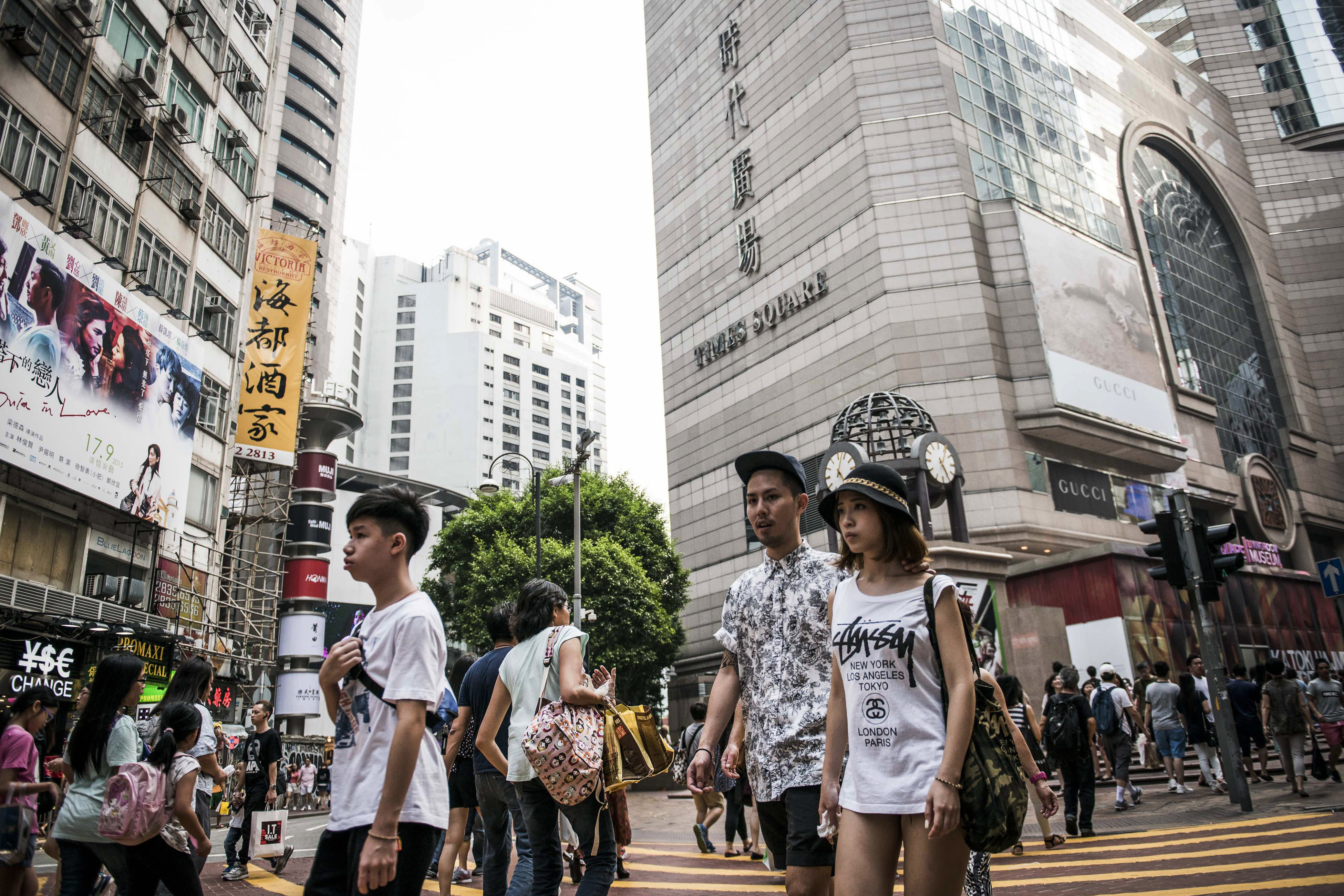Pedestrians cross Russell Street in front of the Times Square shopping mall, operated by Wharf (Holdings) Ltd., in the Causeway Bay shopping district of Hong Kong, China.
Xaume Olleros | Bloomberg | Getty Images
Hong Kong's tourist arrivals and retail sales figures are unlikely to be any better in November after their dismal showing in October, an economist said on Tuesday.
"It's very hard to imagine that the retail sales numbers and tourist arrival numbers will be any better in November given how much of a step-up in protest and violence that happened during that time," said Martin Rasmussen, China economist at Capital Economics.
Hong Kong, a former British colony that returned to Chinese rule in 1997, has seen widespread demonstrations since June, some of which have led to violent clashes between protesters and the police. The protests were initially sparked by a proposed law that would have allowed extradition to mainland China, but the unrest later morphed into broader anti-government demonstrations that include demands such as greater democracy and universal suffrage.
In October, retail sales fell 24.3% from a year ago, according to preliminary Hong Kong government data. The city's government said that slump is the worst on record.
Tourist arrivals slumped 43.7% in October from year ago to 3.31 million, according to the Hong Kong Tourism Board. That's a sharper drop than the 34.2% decline in September. Mainland Chinese visitors fell 45.9% in October from a year ago.
"The Chinese tourists, we don't think that they will feel welcomed in the city again anytime soon especially given the big step-up in state media on the mainland regarding the Hong Kong situation," Rasmussen told CNBC's "Squawk Box."
The Hong Kong government has pushed out stimulus to support the city's economy. But the Hong Kong dollar is pegged to the U.S. dollar, which Rasmussen said leaves little space for the government to adjust monetary conditions, although they could step up fiscal spending to boost the economy.
Last week, U.S. President Donald Trump signed into law two bills supporting Hong Kong protesters. China subsequently suspended U.S. military visits to Hong Kong and sanctioned several U.S. non-government organizations.
Rasmussen said, however, the upside of that development is that Beijing appears to want to contain the fallout of the act to Hong Kong and not link it to trade talks — a positive for the U.S.-China relationship.
